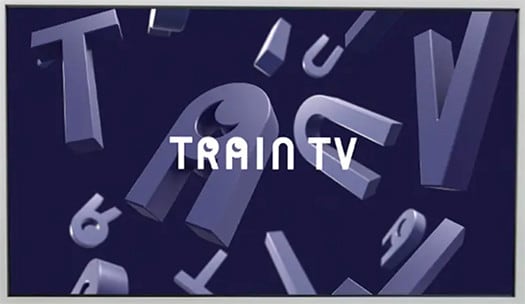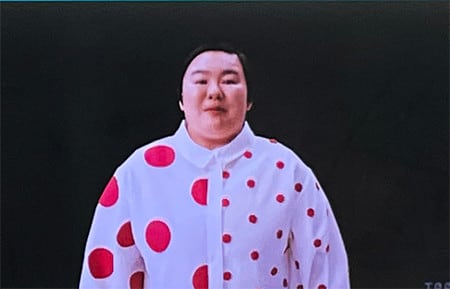


やはり東京にときどき出張することは意味があると思っています。なにが、とか目的的なものはそれぞれの専門分野によって違いがあると思いますが、東京という都市空間はそれ自体が「時代を映し出すリアルビジョン」であって、そこで社会の変化のさまざまが表出している。
今回、約2ヶ月ぶりに行って見て目に止まったのが「TrainTV」の様子。
これは<電車の中のテレビ局『TRAIN TV』、4月1日開局 自社で番組制作を行う>というキャッチフレーズを掲げたニューメディア。
広告や情報の世界で生きてきた人間として、非常に興味を掻き立てられた。わかりやすい情報は以下。
https://ebisu-hatsu.com/11439/
現代はこれまでの新聞メディアが完全にその「情報コントロール力」を失ってしまって、テレビメディアを通しての既存メディアの全国民の脳内グリップ力が大きく毀損してきている。新聞を見ることは30代以下の世代にとっては化石的な情報文化。そして日本の情報社会の最大の問題である新聞メディアによるテレビメディアの「支配」構造もまた、YouTube動画などの急速な拡大によって、死滅に向かいつつある。
報道の自由度ランキングみたいな「脅迫型情報」で、日本の報道の自由度は非常に低い、それは政治によってもたらされている。みたいなキャンペーンが刷り込まれてきたけれど、実は新聞メディアがテレビメディアを「牛耳っている」ことこそが、報道の自由をゆがめている最大のポイントだということを日本では「報道」していないことが明らかになってきている。
ま、そのことは別テーマになるけれど、そのようなメディア状況の中で、YouTube動画によっていわば「市場破壊」が起こっている。ひとびとは既存メディアによる情報グリップから離れて、より自由なYouTube動画に吸引されて行っている。
このような状況があったのだけれど、この「TrainTV」というような動きは、既存の「広告メディア」からの既存情報寡占構造への反乱の萌芽のように思えたのです。首都圏の交通メディアというのは従来、広告代理店などによって交通広告出稿の受け皿という存在に留まっていたのだけれど、推測では、このままでは広告受注は減少の一途をたどるという危機感が高まって、座して死を待つよりも、方法的にはYouTube動画と既存テレビメディアとの「いいとこ取り」作戦に向かったように思える。
たしかにYouTube動画全盛の時代だけれど、わたし的にはその限界も見えてきていると思う。
そしてチャイナの「TicTok」はさっそくこの動きと提携した番組配信を始めていた。さてこの動き、日本のメディア状況への一石になっていくかどうか、注目している。
English version⬇
[TrainTV, a Transportation Advertising Media Challenge to YouTube Video
The "inconvenience" of the Japanese press, where newspapers also have control of television. Is it a rebellion against the choice of YouTube video that has sewn through the gap? ...
I believe that it is meaningful to make occasional business trips to Tokyo. What is the purpose of such a trip may differ depending on one's field of expertise, but the urban space of Tokyo itself is a "real vision of the times," where various changes in society are expressed.
This time, after an absence of about two months, the "TrainTV" caught my attention.
This is a new media outlet with the catchphrase, "TRAIN TV, a TV station on trains, will open on April 1, and will produce its own programs.
As someone who has lived in the advertising and information world, I was very intrigued. The following is a brief description of the information.
https://ebisu-hatsu.com/11439/
Today, the conventional newspaper media has completely lost its "information control" and the existing media's grip on the brains of the entire population through the television media has been severely damaged. Looking at newspapers is a fossilized information culture for the generation under 30s. And the biggest problem of Japan's information society, the "control" structure of the TV media by the newspaper media, is also dying due to the rapid expansion of YouTube videos and other media.
The "intimidation-type information" such as "press freedom ranking" has led to the campaign that the level of press freedom in Japan is very low, and it is brought about by politics. However, it is becoming increasingly clear that the biggest point of distortion of press freedom in Japan is actually the "control" of the TV media by the newspaper media, which is not being "reported" in Japan.
This is a topic for another topic, but in such a media situation, YouTube videos are causing a "market destruction," so to speak. People are being drawn away from the grip of information by the existing media and are being attracted to the freer YouTube videos.
This situation was already in place, but this "TrainTV" movement seemed to me to be a budding rebellion against the existing information oligopoly structure from the existing "advertising media. The transportation media in the Tokyo metropolitan area had been limited to being a receptacle for transportation advertisements placed by advertising agencies, but my guess is that there is a growing sense of crisis that advertising orders will continue to decline at this rate, and rather than sit back and wait for them to die, they have turned to a methodical strategy of combining YouTube videos and existing TV media. Rather than sitting on their hands and waiting for the situation to die down, they seem to have decided to take the "best of both worlds" strategy of YouTube videos and existing TV media.
It is true that YouTube videos are at the height of their popularity, but I think we are beginning to see the limits of their popularity.
TicTok" in China has already started to distribute programs in cooperation with this trend. I am looking forward to seeing if this movement will be a major step forward for the media situation in Japan.



















